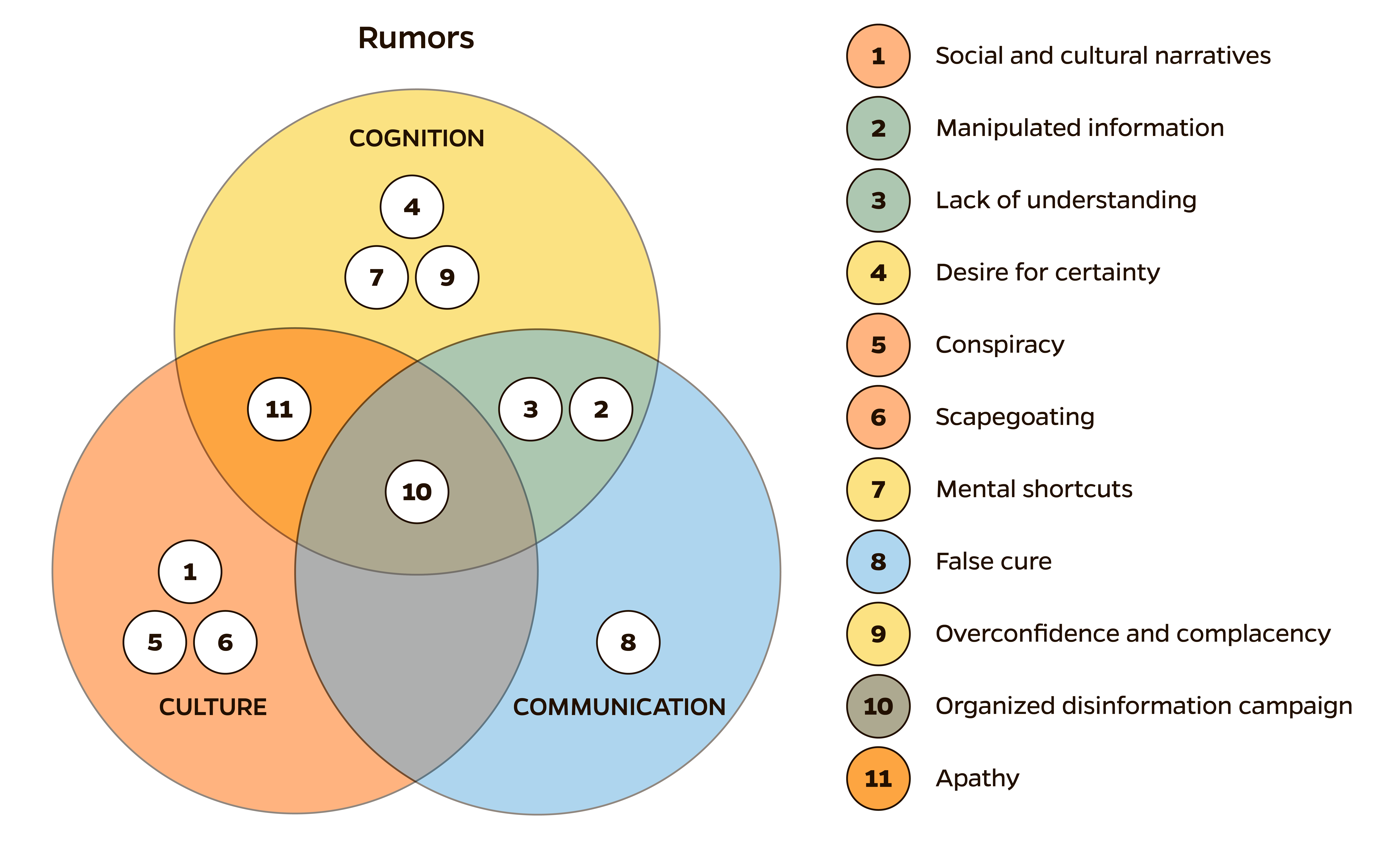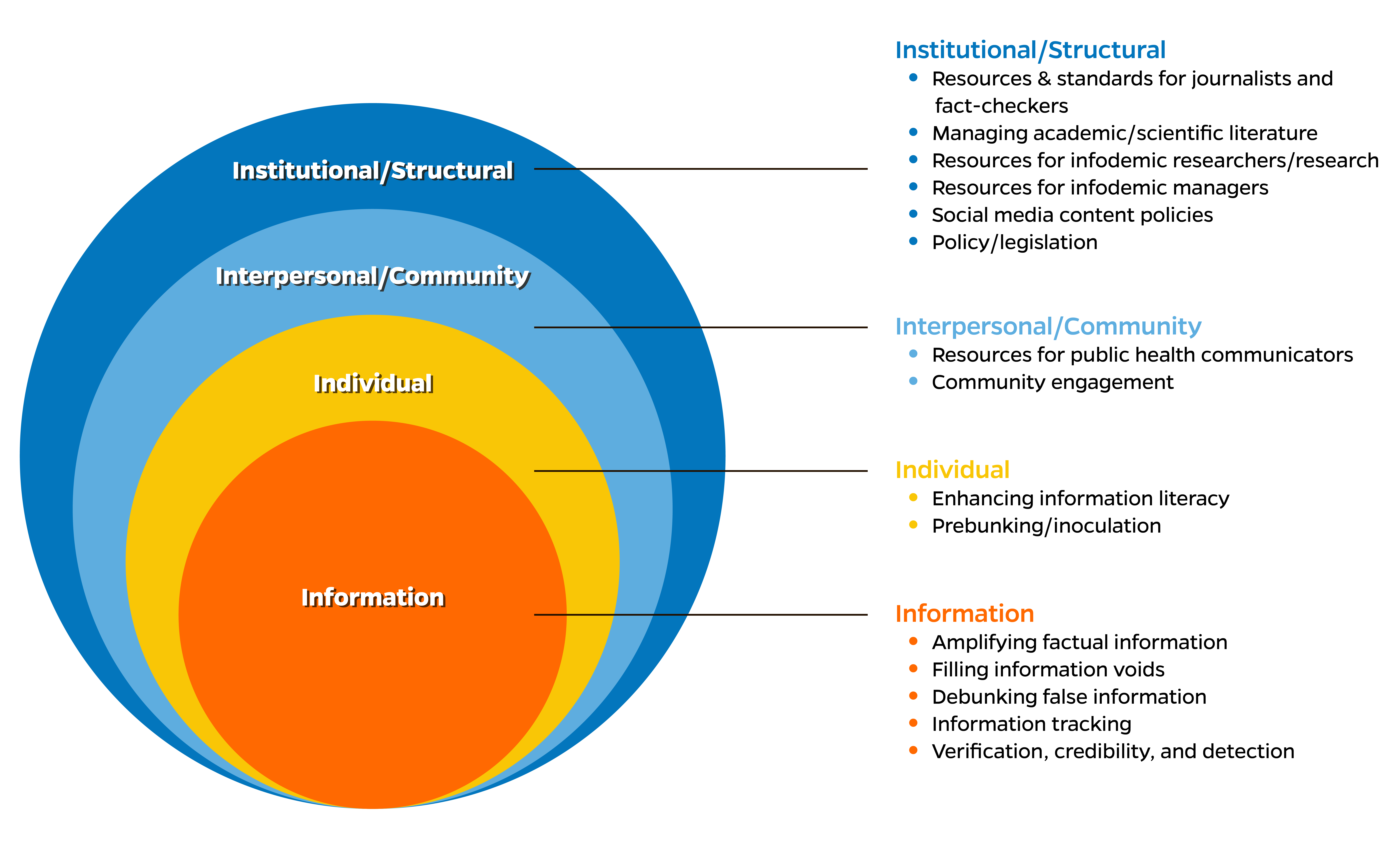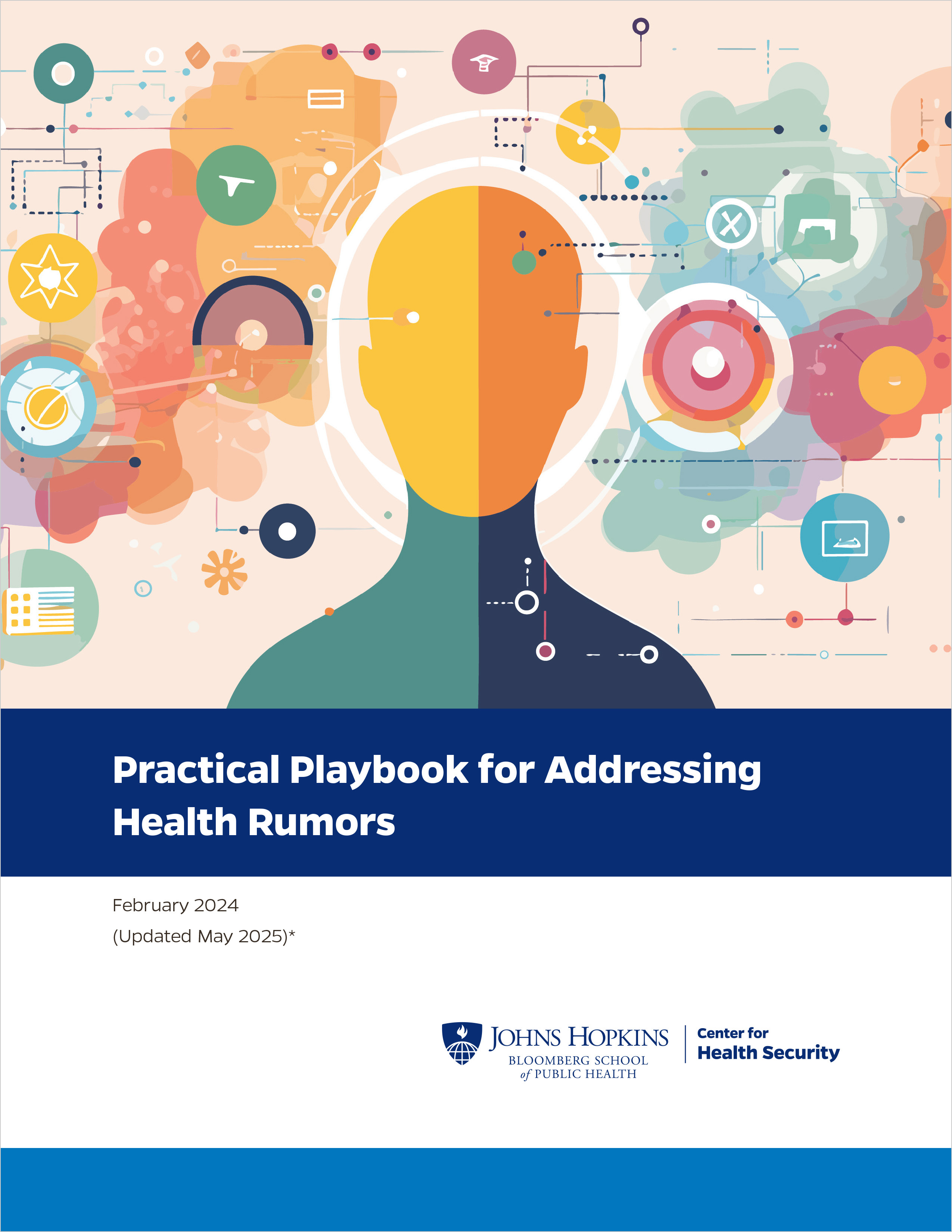
Tackling Rumors and Understanding & Strengthening Trust (TRUST) in Public Health

Reducing the spread of misleading rumors and purposefully manipulated narratives is crucial for building trust in public health emergency preparedness and response (PHEPR). During public health emergencies, public health professionals can expect to see a wide range of health-related narratives, from simple questions and concerns to more difficult-to-change narratives. These could spur an infodemic, wherein too much information, including false, inaccurate, or misleading claims, circulate during an outbreak and pose serious threats to human health (WHO). Misleading and incorrect claims can create confusion during public health emergencies, reduce public trust in authorities, hinder response, and have tangible impacts on health behaviors and outcomes. Therefore, it is important to reduce the spread of health-related rumors to improve PHEPR.
This project explores the following dimensions of addressing misleading rumors:
What kinds of rumors spread during public health emergencies?

Some types of rumors seem to keep coming up whenever there is a public health emergency in the US. To understand patterns and themes of these rumors, the project team conducted an analysis of viral rumors that circulated during past public health emergencies. Read about the findings of this work.
What interventions and approaches are used to manage and respond to health RUMORS?

Practitioners often have to address the complex and evolving problem of health rumors with little available information about the potential tools or approaches at their disposal. To help public health practitioners examine existing information management tools and learn from past approaches, this project compiled a broad collection of local, national, and international approaches to managing and responding to misleading rumors and purposefully manipulated narratives related to health. Read about these approaches here. You can learn more about modifying approaches based on the type of rumor here.
What are some practical ways for practitioners to decide when and how to address misleading rumors and false narratives?

Although there are many ways to address misleading rumors, there is a lack of hands-on, practical information on when and how to do so in an environment where resources are often limited. The project team developed a Practical Playbook for Addressing Health Rumors, which provides guidance on ways public health and medical professionals can set themselves up for success, make decisions on when they need to act to address misleading rumors, choose which actions and approaches might be useful to their audiences and information needs, and evaluate how their efforts are working. Read more about the Playbook.
